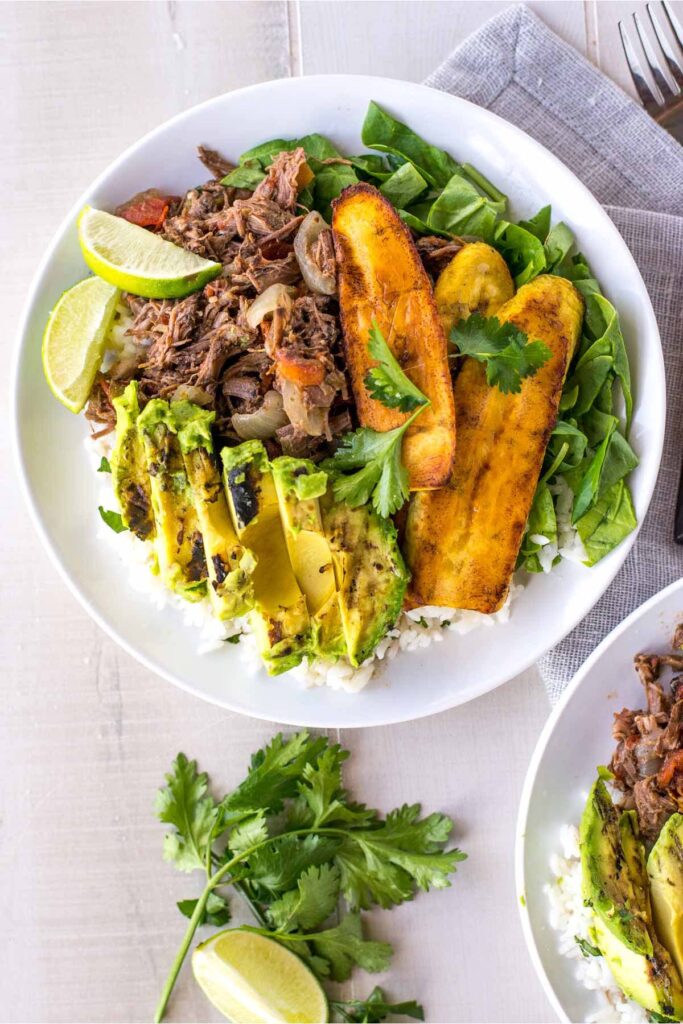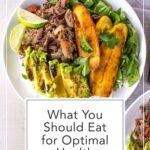
Listen on iTunes | Listen on Spotify | Listen on YouTube | Review the Podcast
If it feels like we’ve been here twenty times over, asking what is good and what is bad food. While it might seem elementary, food is still the most debated topic in health. The health space seems to continuously change what food they claim is ‘good.’ It’s like the flavor of the day.
Fifty years into the bloom of the health era, we’re still asking the same question: what should we eat?
It’s the same question I asked when I set my life path as a nutritionist. I wanted to help break the noise and define what foods create health. But that path was harder than anticipated. It wasn’t straight or clear but it felt narrow, even elusive.
Many people find themselves in the same boat. Just when you think you have it figured out, your ideas about what is healthy change again.
Yet, the longer I’ve been in the space and recognized patterns, the more I’ve realized it’s really not about a list of healthy and unhealthy foods. It’s about what your body needs. Your diet is personal.
Just because someone says it’s healthy doesn’t mean it’s healthy for you.
Of course, I know that’s not as sexy as telling you exactly what you should eat. I do hope you can see the freedom that health isn’t as complex as we’ve made it. It’s just showing up daily and feeding your body what it needs to thrive.
With all of that said, there are still some frameworks to follow. A set of boundaries that helps clarify what is more healthy and potentially what is less. In this podcast, I lay out that framework by teaching you how to determine the difference between healthy and unhealthy food.
That begins by learning how it interferes, influences, and alters your internal energy.
Inside the podcast, I break it all down. For now, let’s dive into the list.
What Should We Really Eat for Optimal Health?
Food carries no moral code, even if it feels that way. No matter how much it feels like it, food can not make you feel guilty or shameful. It’s other people’s beliefs instilled in you that do this.
That doesn’t mean it’s easy to separate food from emotion, but it is important to recognize the difference so that you can approach food from a more subjective perspective, see it outside of how you believed it, and start to understand its purpose.
Food is required for life. The act of eating alone, regardless of what you eat, satisfies one of two critical needs in health: safety and energy.
Eating is one of the best ways to remind your body it is safe.
But eating also supports your internal energy. Here, you can begin to define boundaries behind what is considered healthy or unhealthy.
Food is not about calories but how those calories influence the body. Or better said, food is less about what you consume and more about how your body responds to what you consume.
How your body responds is singlehandedly the most important aspect of health determining your actions.
How your body responds is based on its internal flow of energy (and safety).
What you eat can influence this in positive or negative ways.
Good Food vs Bad Food
The difference between good food and bad food or healthy and unhealthy food, at least for you, is based on your body’s reaction to that food, which happens through the interaction of food energy and your energy.
It happens based on whether the food positively or negatively impacts your internal energy, boosting your metabolism.
If it positively influences your energy, it is considered a healthy food. But if it negatively impacts your body, it isn’t necessarily considered “bad” but not as healthy.
The goal is to consume more foods that positively impact you. Foods that boost your energy and influence it in positive ways. Foods that make you feel alive, vibrant, and energized, not stagnant, tired, and needing to unbutton your pants.
Of course, the quantity of food can change this, as too much, even of good things, can stall your energy. The quality of the foods you consume determines the change in your biology.
Quality foods are based on nutrient value.
The more nutrient-dense the food, the more positive its energy will be because nutrients are the purpose of eating.
Healthy foods include:
Good for you foods boost your energy and supply the necessary nutrients to support your biology. I call these metabolically active foods (learn about the metabolic approach here). They are high in nutrients, often found in their most pure or whole form, and natural or grown in nature.
I won’t list everything because it’s extensive, but anything considered grown from the earth is your friend.
The list would include fruits, vegetables, animal proteins, legumes, and grains.
You could get picky and say those grown closest to your home are often more nutritious. Think farmer’s market, farm-fresh animal proteins, local co-ops, and organic.
Processed chemicals, ingredients, and compounds will always decrease the energetic value of food, regardless of how many nutrients it contains. Because those compounds take energy to process and detoxify, they decrease the positive value of those foods. These would be considered not-so-great-for-you foods (unhealthy foods if preferred).
A list of bad foods (unhealthy foods).
I hate the word “bad,” but for lack of better verbiage, I’m trying to indicate foods that don’t support your body in positive ways—foods that potentially even take from your body rather than give to it.
Food was meant to give life, not take life. But today, more than ever, our food is considered harming us more than it is helping us. That’s because we’re consuming a ratio of foods we’ve never before eaten and foods that are considered edible but perhaps not real food at all.
If we look at the definition of food, it is considered any nutritious substance that people or animals eat or drink or that plants absorb in order to maintain life and growth.
Nutrients are fuel, which means food should be fuel. It should add to your life, not take from it, and anything that takes work or nutrients to process more than it gives back is considered harmful or “bad” for your health.
Why You Should Stop Focusing On Calories.
I know this can feel complicated in a world that has promoted calories as the gold standard of nutrition, but this is exactly why we can’t look at calories alone.
Calories don’t quantify the nutrients within those calories. They don’t determine how much life or lack of life is inside, leaving a world of people counting calories and looking for food that has minimal calories, but in the process, they minimize the life-giving nutrients they need.
These “low-calorie” foods are not real foods but only edible substances, making you believe you’re eating healthy when, in reality, you’re depleting your body of health. They’re making you weaker, not stronger, because they lack what your body needs from food.
They fill you up without ever providing what you need from food.
These foods force you into energy deprivation and throw the internal nutrient ratio out of balance.
Unfortunately, they often taste good even though they don’t leave you feeling good. Foods like chips, crackers, cereals, highly processed granola bars, 100-calorie snack packs, vegetable oil or canola oil, and processed meats.
This is not to say you can’t consume them, but just remind yourself that they don’t offer what you need from food. They don’t offer the nutrients you need to thrive.
Instead of focusing on the negative, focus on the positive. If you eat more of the good, you’ll naturally limit the unhealthy foods.
How should you eat?
You need food and enough food to survive and even thrive. But what type of food you consume changes your biology based on the nutrients and support the food contains.
Instead of focusing on food’s moral code, pay attention to its nutrients. Eat more nutrient-rich foods and enough of them to supply your body with the necessary building blocks.
That means eating various nutrient-dense foods and focusing on vital nutrients like omega-3 fatty acids, protein, and healthy carbohydrates.
In the coming podcasts, we’ll break down each macronutrient, helping you understand what your body needs to build healthy structures and generate more energy. Stay tuned as you learn about carbohydrates, protein, and fat. But for now, focus less on the number of calories and more on the number of nutrients.
Your body needs more of them.
Follow along in health school to learn more.
This podcast belongs to a larger series called Health School. A podcast devoted to teaching you health is much easier than you know, but that happens when you understand the foundations of how your body works and its connection to your mind and soul.
